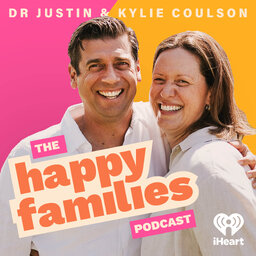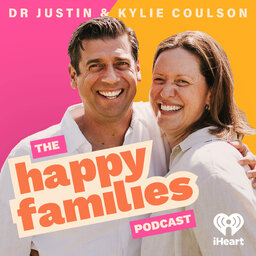#1213 - Your Daughter Doesn't Need Another Mirror With Dr Renee Engeln
Why do so many girls and women feel like they’re never “enough” when it comes to their appearance? In this powerful episode, Dr. Renee Engeln, author of Beauty Sick, joins Justin Coulson to explore the deep-rooted cultural obsession with beauty that shapes how girls and women see themselves. From five-year-olds already worrying about dieting to teens tying their self-worth to their looks, we discuss how self-objectification, social media, and unrealistic beauty standards impact mental health and self-esteem—and, more importantly, how we can help the next generation break free from beauty sickness.
KEY POINTS:
-
How self-objectification starts young—why even five-year-olds worry about their bodies.
-
The role of social media in reinforcing beauty standards and distorting self-worth.
-
Why puberty makes body image issues worse for girls while often benefiting boys.
-
The pressures of perfection on women—from “mum jeans” to Botox and beyond.
-
The hidden costs of beauty obsession—lost time, lost opportunities, and lifelong insecurity.
-
How parents unintentionally reinforce body image struggles (and how to change that).
-
The power of focusing on what bodies can do, rather than how they look.
QUOTE OF THE EPISODE:
"We may no longer play dress-ups and pose in front of the mirror like young girls do, but I worry that’s only because we’ve internalised that mirror—we never actually left it behind." – Dr. Renee Engeln
RESOURCES MENTIONED:
-
Beauty Sick: How the Cultural Obsession with Appearance Hurts Girls and Women by Dr. Renee Engeln
-
The End of Average by Todd Rose
-
Beauty Sick Website—More on Dr. Engeln’s research
-
Happy Families Website—Parenting resources
- Enough: A Session for Young Girls [Webinar]
- The Miss-Connection Summit [On sale!]
ACTION STEPS FOR PARENTS:
- Create an “appearance-free” zone at home—focus conversations on interests, achievements, and values, not looks.
- Model self-acceptance—avoid negative self-talk about your own body in front of your kids.
- Encourage body functionality—celebrate what bodies can do, like running, dancing, creating, and learning.
- Audit social media—help your child follow diverse, inspiring accounts rather than beauty-focused ones.
- Talk about the beauty industry’s influence—help kids see how companies profit from insecurities.
- Give your teen a cause—channel their energy into fighting beauty standards, rather than succumbing to them.
 Dr Justin Coulson's Happy Families
Dr Justin Coulson's Happy Families


